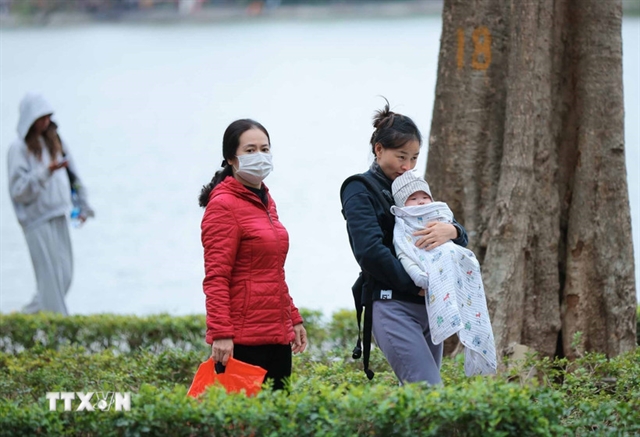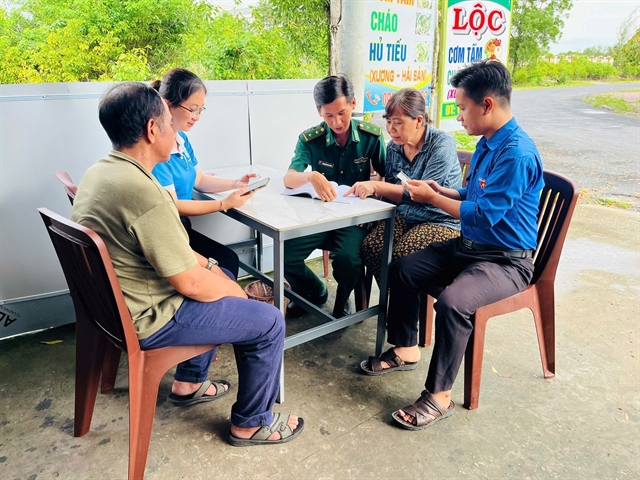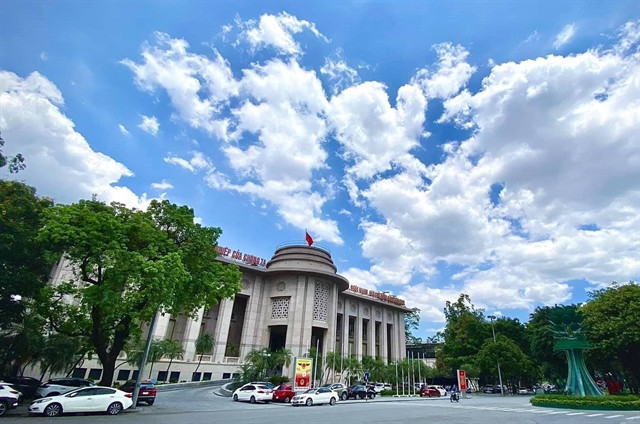 Society
Society

 |
| Members of a digital transformation team in Cà Mau Province’s Phan Ngọc Hiển Commune visit a resident’s house to assist with digital procedures. — VNA/VNS Photo |
CÀ MAU — Phan Ngọc Hiển Commune in the southernmost province of Cà Mau is pressing ahead with digital transformation and achieving positive results.
As a remote coastal commune in the southernmost province, it faces many challenges in its digital transformation journey.
It has a strategic position, bordered by the sea on three sides, with an area of nearly 238 square kilometres and a population of more than 35,000.
Although far from the provincial administrative centre, the commune has great potential, with forests and seas, diverse fisheries and logistics facilities, and major transport routes such as Hồ Chí Minh Road.
Phan Ngọc Hiển is regarded as a connecting point between the province’s two key economic zones, Đất Mũi and Năm Căn, creating opportunities for strong growth in the marine economy, renewable energy and logistics services.
But its remoteness also presents obstacles to achieving digital transformation.
The biggest challenges come from infrastructure and geography: Internet services are unstable, with the signal weak in many areas; the low population density makes it difficult to attract technology investment; local digital skills remain limited. Meanwhile, the commune lacks dedicated personnel.
Nevertheless, the communal Party Committee and People’s Committee have defined digital transformation as an urgent political task.
It is linked with the goal of eliminating “digital illiteracy,” creating digital citizens and contributing to the national digital transformation agenda.
The commune authorities have mobilised the local Youth Union as the pioneering force, issuing specific plans to implement the movement “Digital Literacy for All.”
The policy of “knocking on every door” is implemented regularly, with 26 community digital technology teams and groups of youth volunteers working closely in every hamlet.
Ngô Nguyễn Phương Thảo, a Youth Union member from Kênh Ba Hamlet, said: “Some families live in places without road access. During low tide, youth volunteers can hardly reach them.
“To provide timely support, we have to travel by waterway, which is very strenuous. Sometimes volunteers must stay in a local home for hours, waiting for the tide to rise before resuming their journey.”
But despite such hardships, the spirit of service motivates the youths.
Thảo said: “This determination has ensured that no member ever feels discouraged. We all share the same goal: to complete our tasks and contribute to building a prosperous and civilised homeland.”
Achieving results
With determination from local authorities and support from socio-political organisations, digital transformation in Phan Ngọc Hiển has produced encouraging results.
All residents and businesses have been guided in handling administrative procedures online.
Services at the commune’s Public Administration Service Centre are now faster and highly appreciated by citizens. All local businesses have adopted cashless payments.
Nguyễn Huy Thành, deputy chairman of the commune Fatherland Front Committee and secretary of the commune Youth Union, said: “Collective efforts in digital transformation movements have delivered clear results. The Youth Union works closely with other socio-political organisations as well as border guards and police to improve outreach to different groups.
“The ‘One for One’ model, where family members and neighbours help each other learn digital skills, has proven effective.”
Since July 1, volunteer teams at the commune’s Public Administration Service Centre have assisted nearly 5,000 individuals and businesses in using online public services and digitalised procedures, he said.
Digital technology is also reaching the marine and aquaculture sector, the commune’s economic backbone.
Fishermen are trained to use weather forecast apps, navigation tools, vessel monitoring systems, and emergency communication devices, which help them adopt modern technology and reduce risks at sea.
To develop the digital economy and become a comprehensive digital society with modern digital governance, the commune has set various targets.
It wants more than 85 per cent of the working-age population to gain digital literacy, 95 per cent using online public services and at least 70 per cent of enterprises and aquaculture households applying digital transformation in production.
To achieve these targets, its People’s Committee has urged the provincial administration to adopt specialised strategies for science, technology and digital transformation in rural areas, unlocking agricultural potential as a key driver of the economy.
It sees investing in training and equipping community digital technology teams with proper skills as a key factor in turning policies into effective action in every hamlet and household, it added. — VNS




